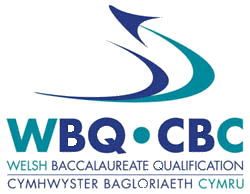|
This page ...
Related pages ...
CEIC Homepage
Meet CEIC
Research
Intercom
Intercom Archive
Study Centres
Summer School
JRIE
Publications
Seminars
International Baccalaureate
Research Unit (IBRU)
Contact CEIC
Links

|
|
Gail Bradley
Intercom 14
Inclusive education in international schools
- a personal view
|
Throughout the world, international schools appear to acknowledge the
enriching experience of cultural and linguistic diversity amongst their
students. Indeed, many international schools actually provide for this
diversity. However, such provision rarely seems to extend to diversity
of ability. There is little mention about utilising the variety of human
achievement. Some international schools claim to be inclusive but, in
many cases, views of inclusive education have been restricted to specific
dimensions such as dyslexia or a mild learning disability. Examples of
international schools offering a truly comprehensive, inclusive education
are hard to find.
Inclusive education is a diverse and complex field that has been introduced
as an alternative to segregated special education. Inclusive education
may be viewed as an evolving process rather than as a fixed end point.
It aims to offer a system that is not only more humane but also more effective
and productive for all students. An inclusive school has students with
a wide range of abilities, and is an institution where nobody is turned
away because of their lack of ability. The diversity of the learning group
is valued and accepted.
The prospect of global mobility and the difficulties that often accompany
it can be daunting enough for families with children who fit the ‘norm’,
but the problems are manifold for parents of a child with special educational
needs. As is evident in one international school, Dover Court Preparatory
School in Singapore, such problems could include physical disabilities,
and mild to severe learning difficulties. Those with special educational
needs could include the hearing impaired, children with Down’s syndrome
or autism, students with speech and language disorders, students with
epilepsy, gifted or talented students, those with cerebral palsy and those
with difficulties related to a variety of syndromes. The feature that
distinguishes Dover Court from the majority of other fee-paying international
schools is the fact that it opens its doors to all. In this sense, Dover
Court could be regarded as being in the forefront of inclusive education
in an international setting by accepting a great diversity of abilities
and catering for a wide range of educational needs.
If, as international educators, we are aiming for excellence, achieving
quality and setting high standards, then a number of issues pertaining
to inclusive education in the international school require consideration.
What does quality in the curriculum mean in this context? Is quality merely
about obtaining good examination results and qualifications? Is this the
basis on which quality can be monitored? Such an approach does not allow
for diversity, since many children may be excluded if these indicators
are employed for such purposes. Should quality instead be about the extent
to which all students are welcomed into the school? Or does achieving
quality in the international school apply only to mainstream students?
Throughout the world, international schools appear to acknowledge the
enriching experience of cultural and linguistic diversity amongst their
students. Indeed, many international schools actually provide for this
diversity. However, such provision rarely seems to extend to diversity
of ability. There is little mention about utilising the variety of human
achievement. Some international schools claim to be inclusive but, in
many cases, views of inclusive education have been restricted to specific
dimensions such as dyslexia or a mild learning disability. Examples of
international schools offering a truly comprehensive, inclusive education
are hard to find.
Inclusive education is a diverse and complex field that has been introduced
as an alternative to segregated special education. Inclusive education
may be viewed as an evolving process rather than as a fixed end point.
It aims to offer a system that is not only more humane but also more effective
and productive for all students. An inclusive school has students with
a wide range of abilities, and is an institution where nobody is turned
away because of their lack of ability. The diversity of the learning group
is valued and accepted.
The prospect of global mobility and the difficulties that often accompany
it can be daunting enough for families with children who fit the ‘norm’,
but the problems are manifold for parents of a child with special educational
needs. As is evident in one international school, Dover Court Preparatory
School in Singapore, such problems could include physical disabilities,
and mild to severe learning difficulties. Those with special educational
needs could include the hearing impaired, children with Down’s syndrome
or autism, students with speech and language disorders, students with
epilepsy, gifted or talented students, those with cerebral palsy and those
with difficulties related to a variety of syndromes. The feature that
distinguishes Dover Court from the majority of other fee-paying international
schools is the fact that it opens its doors to all. In this sense, Dover
Court could be regarded as being in the forefront of inclusive education
in an international setting by accepting a great diversity of abilities
and catering for a wide range of educational needs.
If, as international educators, we are aiming for excellence, achieving
quality and setting high standards, then a number of issues pertaining
to inclusive education in the international school require consideration.
What does quality in the curriculum mean in this context? Is quality
merely about obtaining good examination results and qualifications? Is
this the basis on which quality can be monitored? Such an approach does
not allow for diversity, since many children may be excluded if these
indicators are employed for such purposes. Should quality instead be about
the extent to which all students are welcomed into the school? Or does
achieving quality in the international school apply only to mainstream
students?
|
Gail Bradley has taught in Wales, Abu Dhabi
and Singapore. She is currently teaching at Qatar Academy in Doha.
Gail was awarded an MA in Education by the University of Bath and
is continuing her studies at Doctoral level at Bath. Gail contributed
a chapter on inclusive education in international schools to the
book International Schools and International Education edited by
Mary Hayden and Jeff Thompson.
|
|
|
![]() University | Search |
News |
A-Z Index | Contact
Us
University | Search |
News |
A-Z Index | Contact
Us